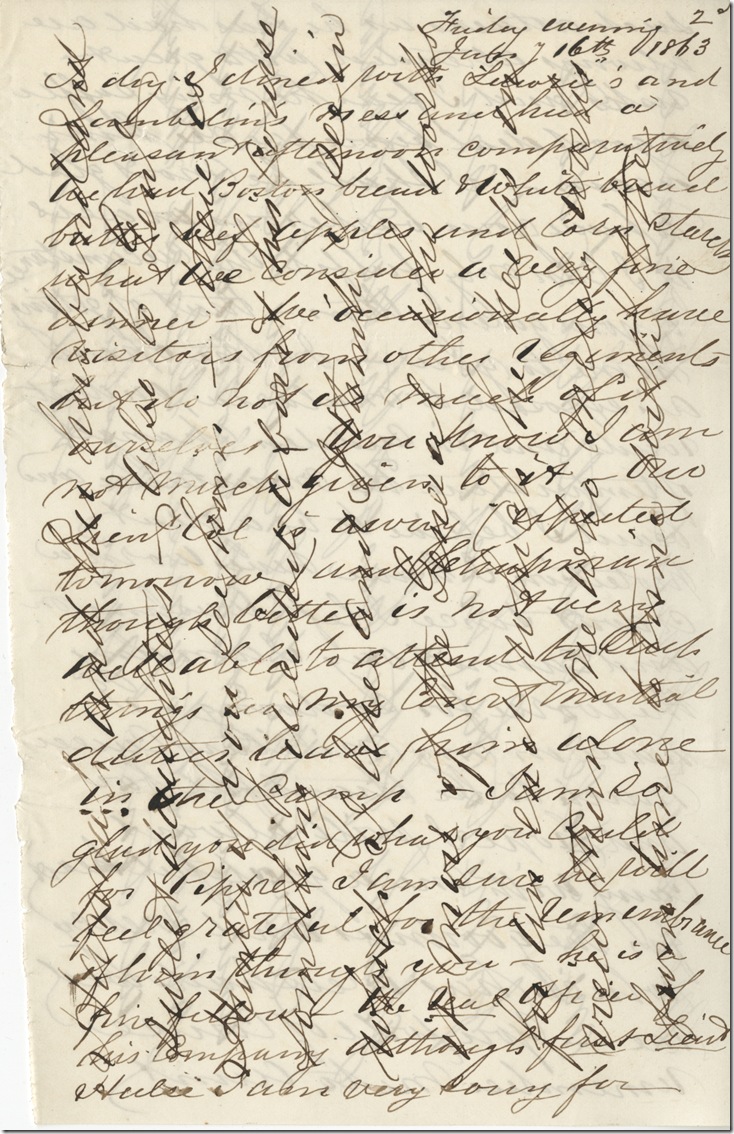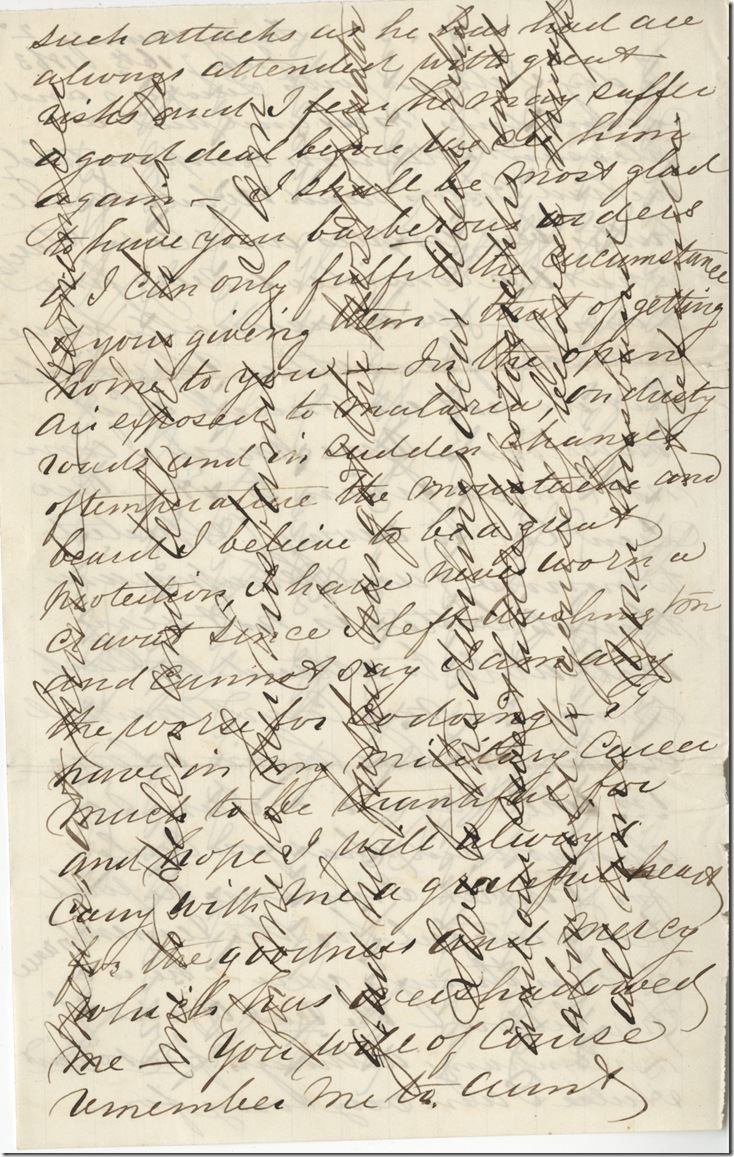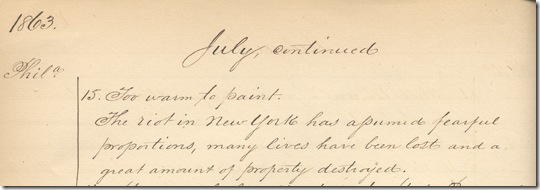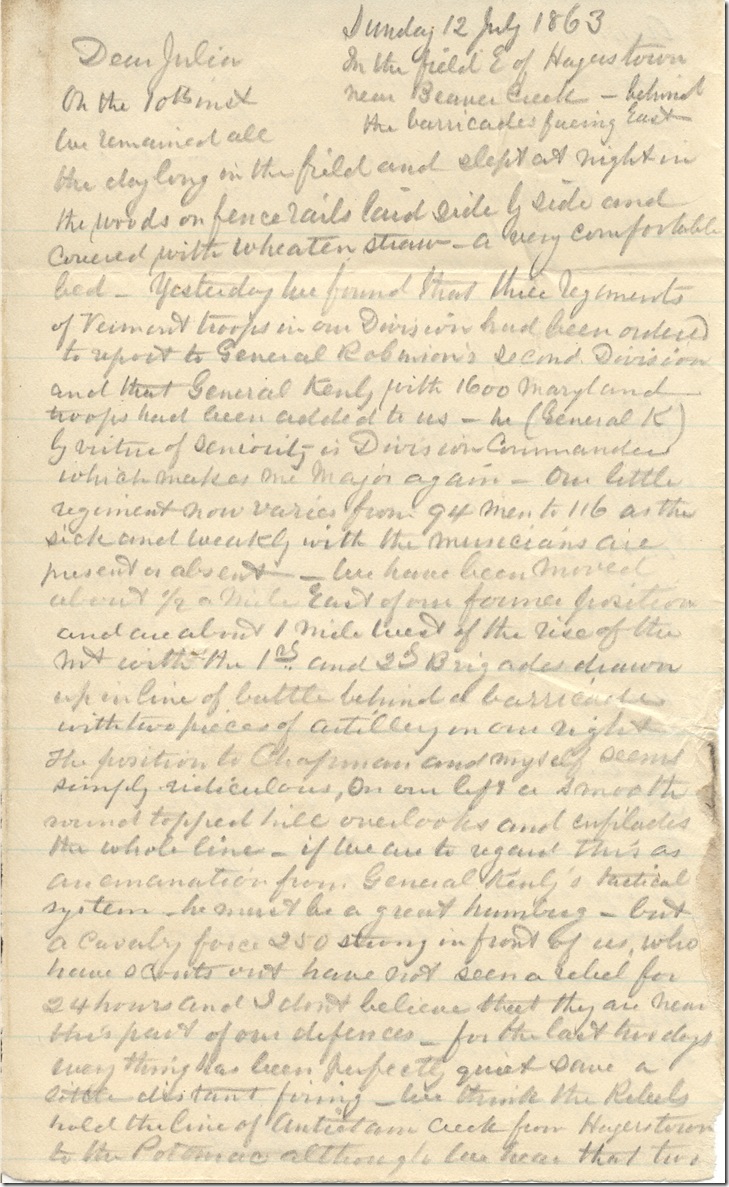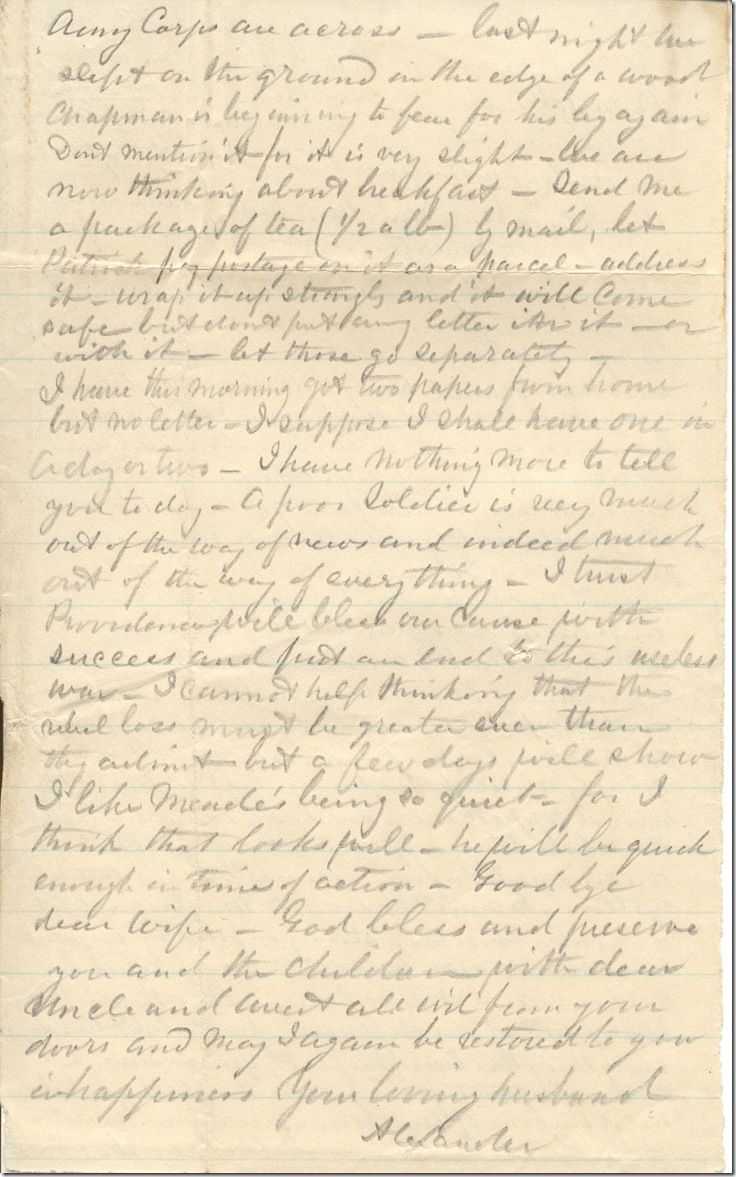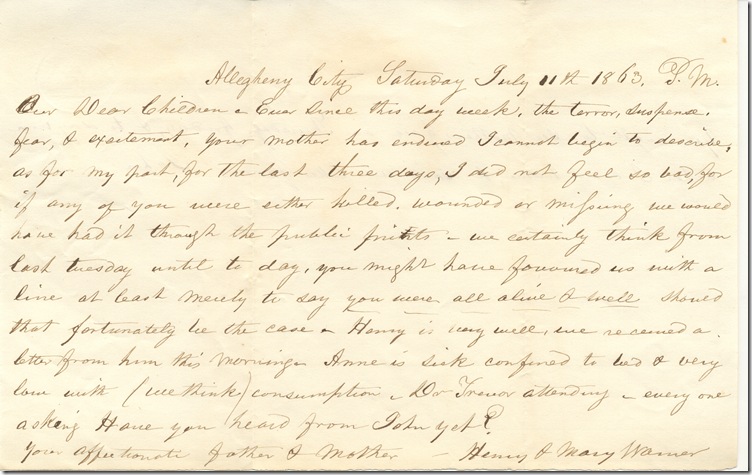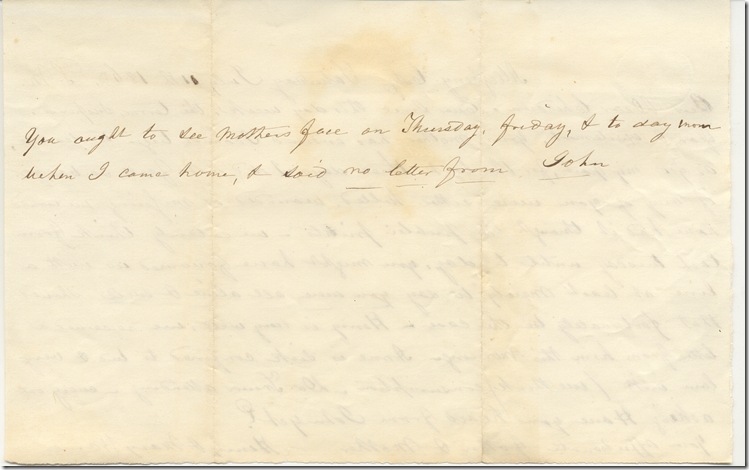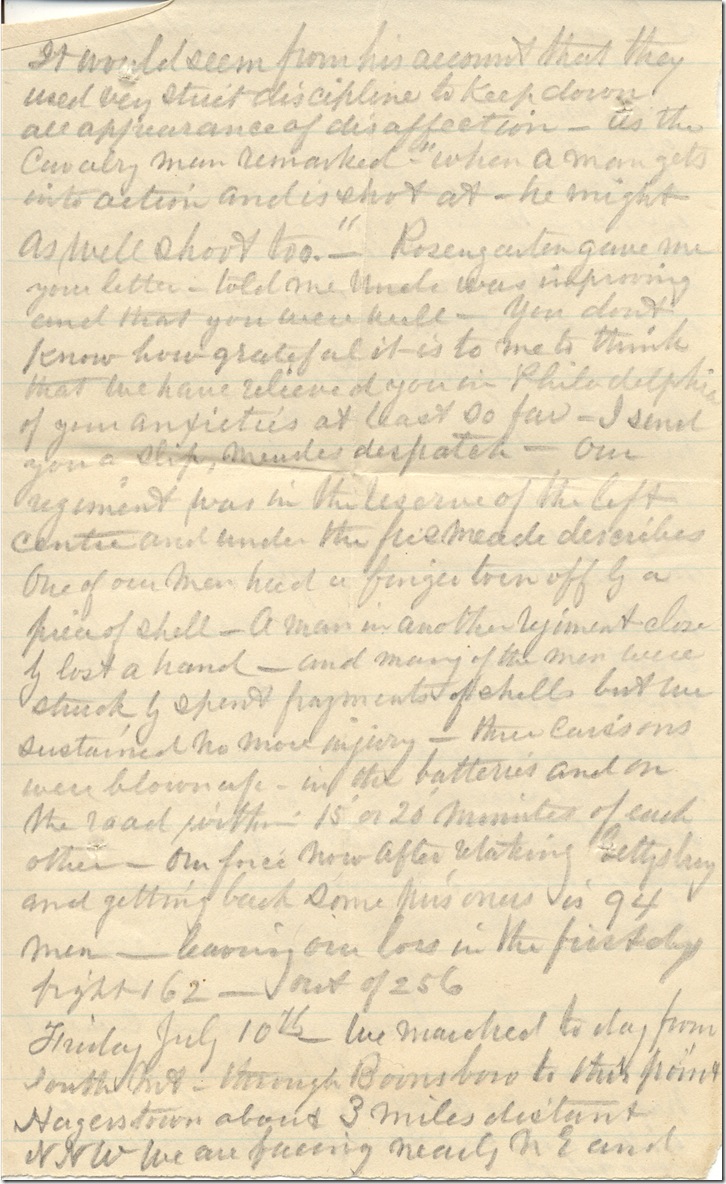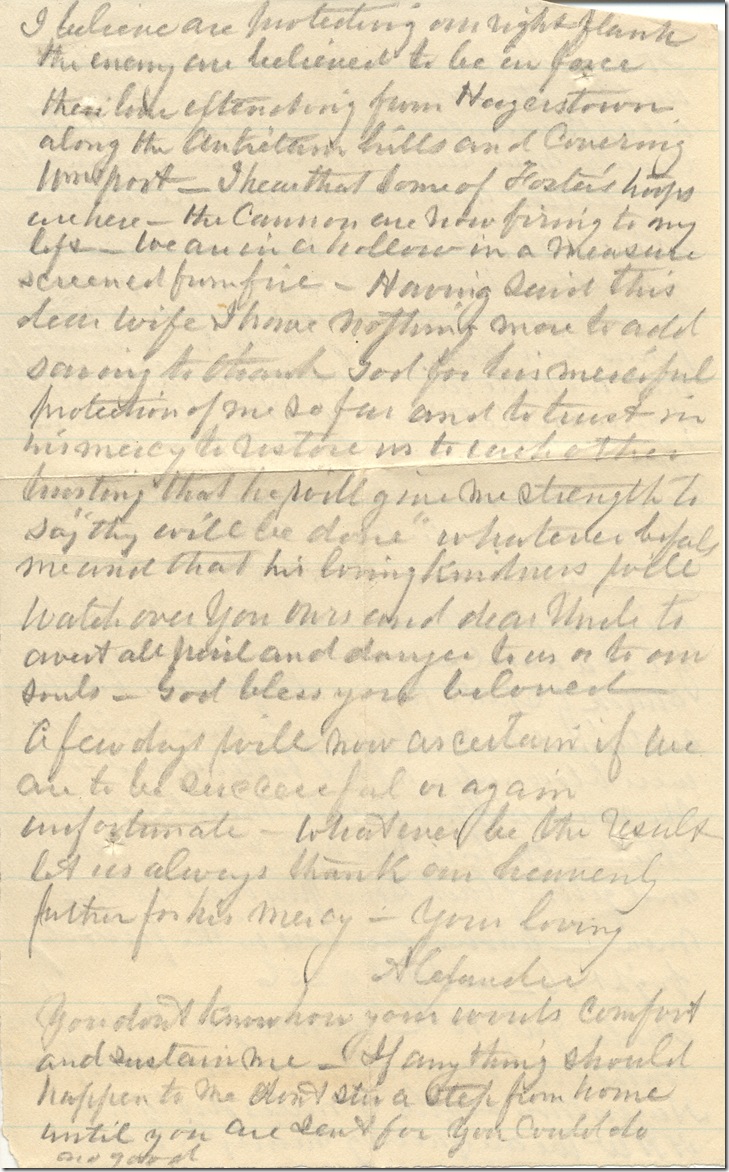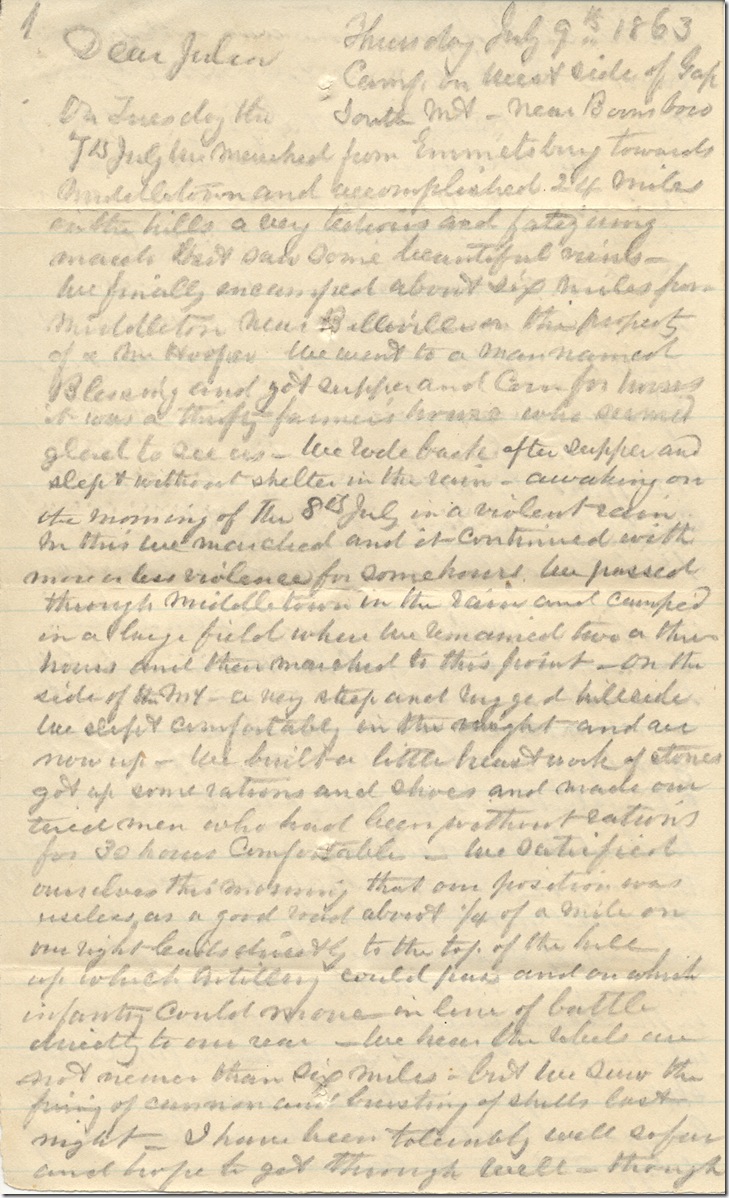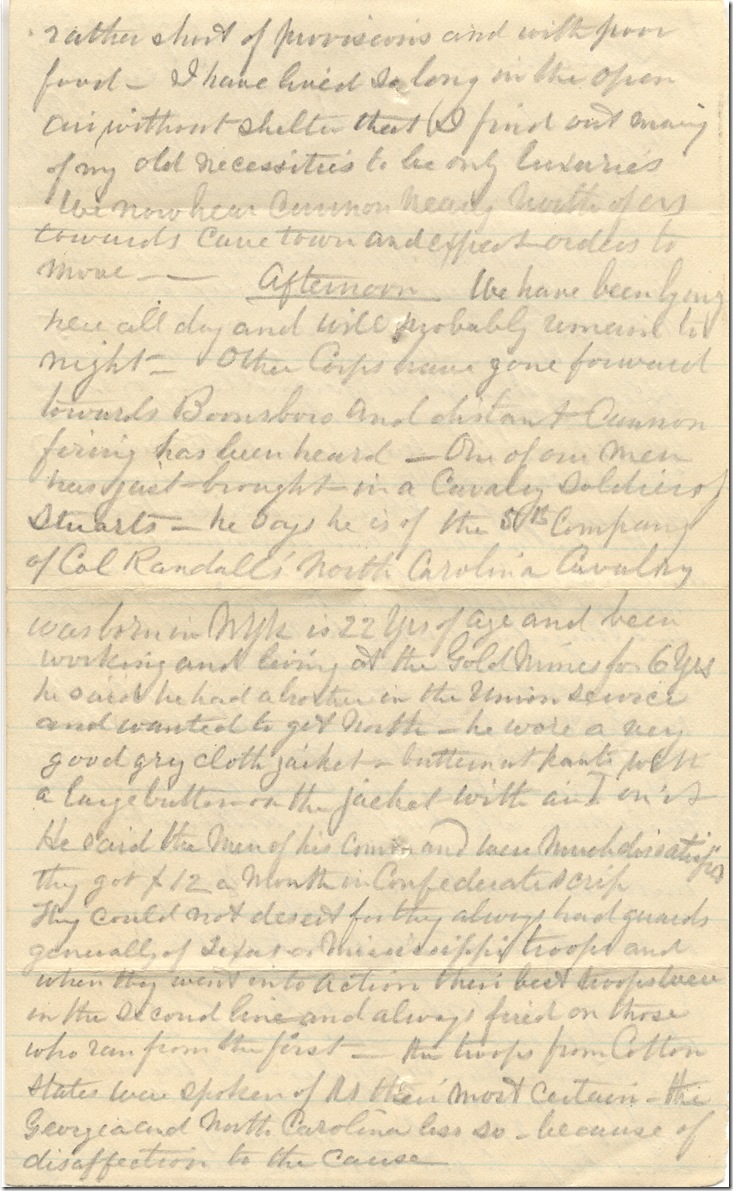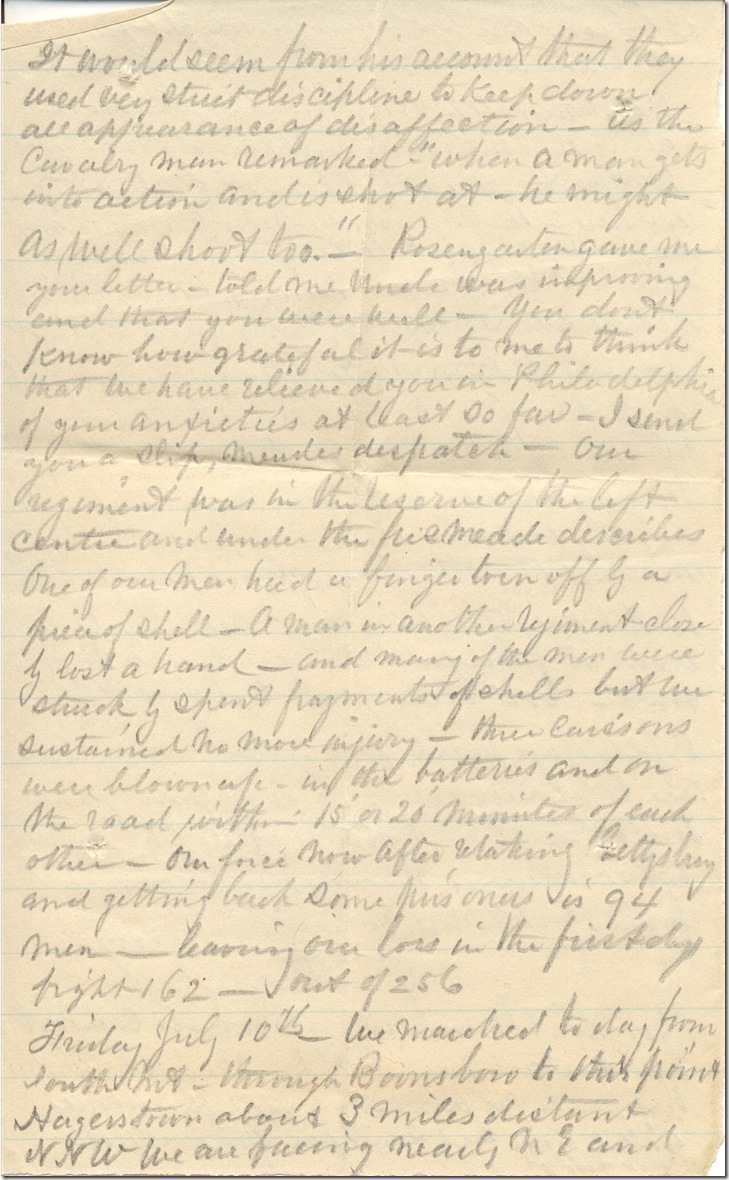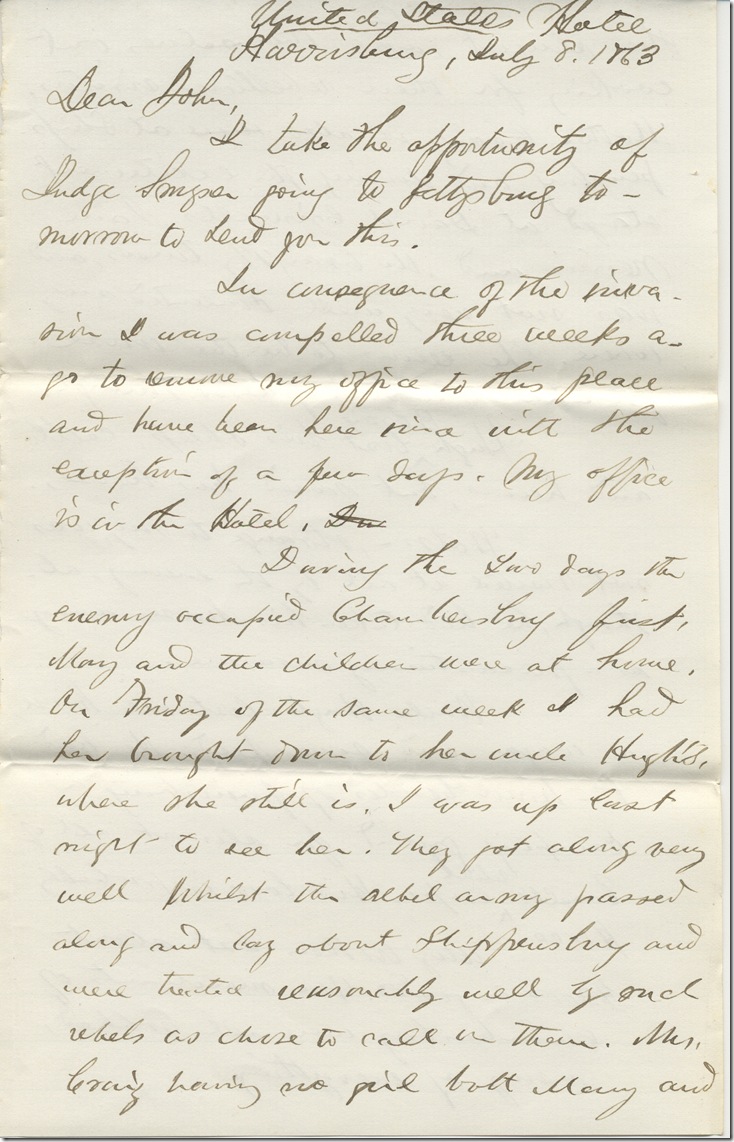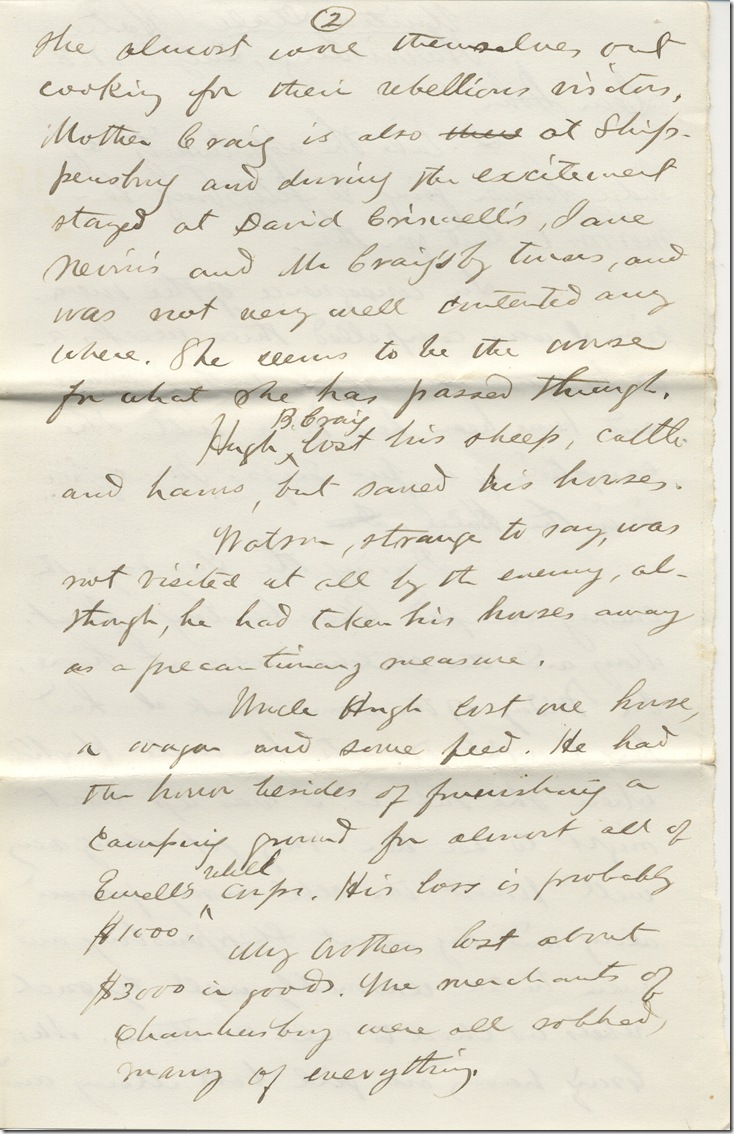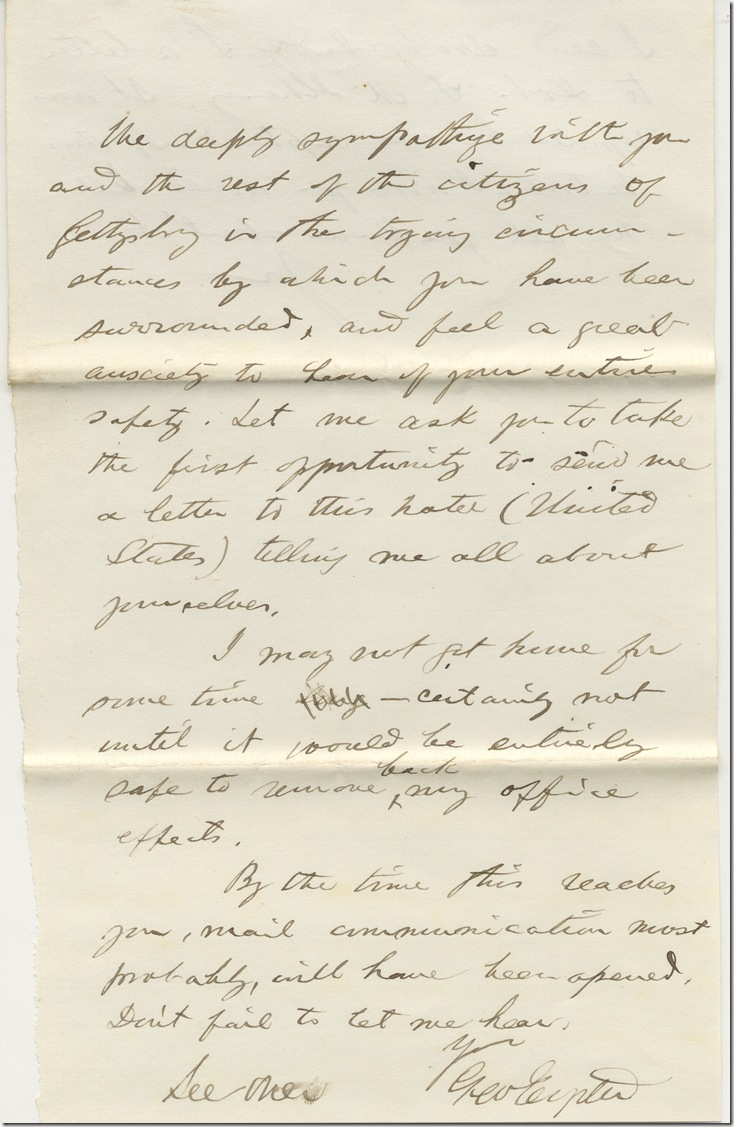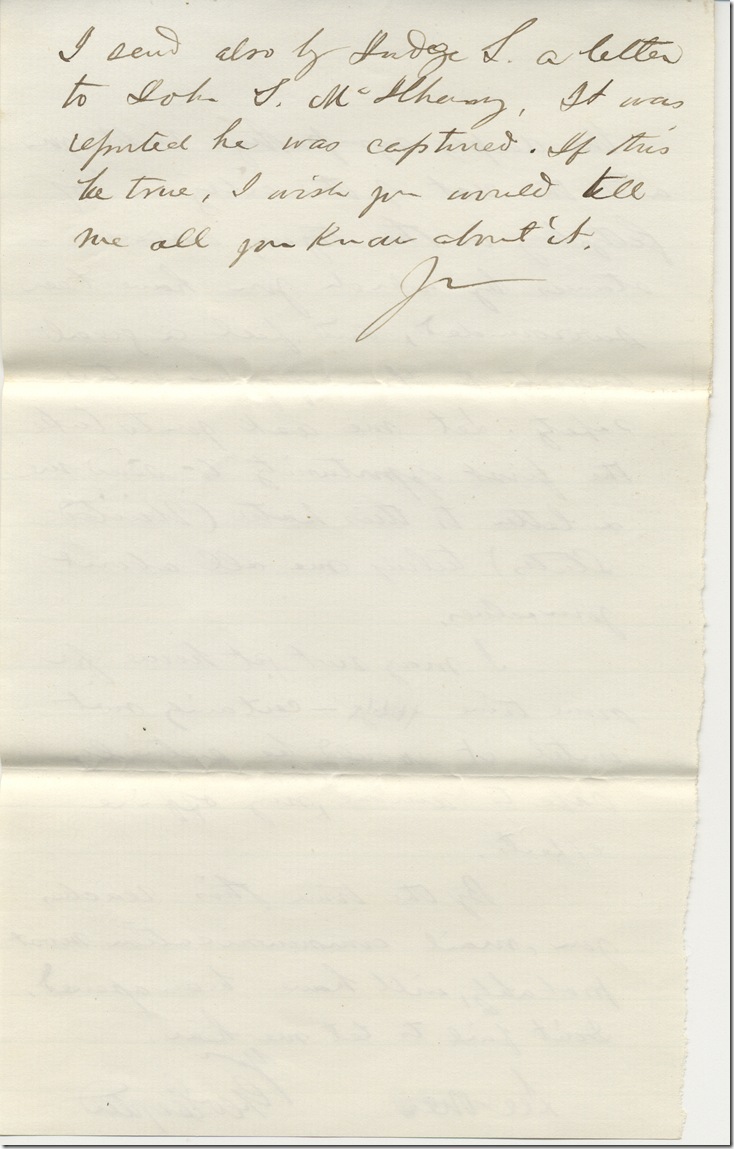Alexander Biddle was a member of the prominent Philadelphia Biddle family and was married to Julia Williams Rush, the granddaughter of Dr. Benjamin Rush. Biddle served with the 121st Pennsylvania Volunteer Infantry, beginning in September 1862. Starting out as a major, he would participate in Fredericksburg and Gettysburg, among other engagements, and would leave the service as a lieutenant colonel. (He was commissioned, but never mustered, as colonel)
This letter is the second dated June 16. Based on the description of “Friday evening,” this may have been written on Friday, July 17.
Transcript:
Friday evening
July 16th 1863
To day I dined with Laurie’s and Lambdin’s mess and had a pleasant afternoon comparatively. We had Boston bread & white bread butter beef apples and corn starch what we consider a very fine dinner – We occasionally have visitors from other regiments but do not do much of it ourselves – You know I am not much given to it – Our Lieut Col is away expected tomorrow and Chapman though better is not very well able to attend to such things as my court martial duties leave him alone in the Camp – I am so glad you did what you could for Pippet. I am sure he will feel grateful for the remembrance of him through you – he is a fine fellow – the real officer of his company although is first Lieut Hulse I am very sorry for such attacks as he has had are always attended with great risks and I fear he may suffer a good deal before we see him again – I shall be most glad to have your barberous orders if I can only fulfil the circumstance of your giving them – that of getting home to you – In the open air, exposed to malaria, on dusty roads and in sudden changes of temperature, the moustache and beard I believe to be a great protection. I have never worn a cravat since I left Washington and cannot say I am any the worse for so doing – I have in my military Career much to be thankful for and hope I will always carry with me a grateful heart for the goodness and mercy which has overshadowed me. You will of course remember me to aunt Hannah and her husband and sweet daughters – Also to Genl Hunter if you see him – there is something decided about his course which I like and I think I see in it more of the General who works for an end which he keeps in view than one who merely works from time to time with the means at hand – Remember me to Helen and tell her to do so for me to her husband. I am glad her father has got the post of Senator.
Love to the darlings, dear Aleck Julia and our sweet little photographs and above all to yourself beloved through all time.
Your husband
Alexander
Citation: Alexander Biddle (1819-1899), autograph letter signed to Julia Williams Rush Biddle. 16 [i.e. 17] July 1863 Rush:IV:30:33
